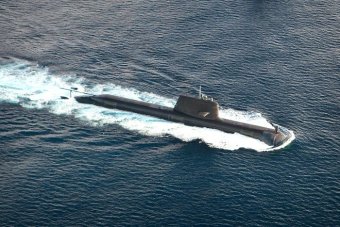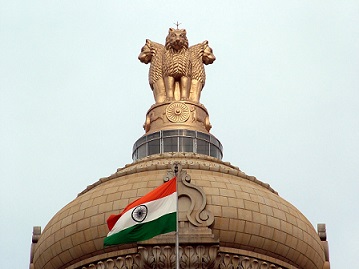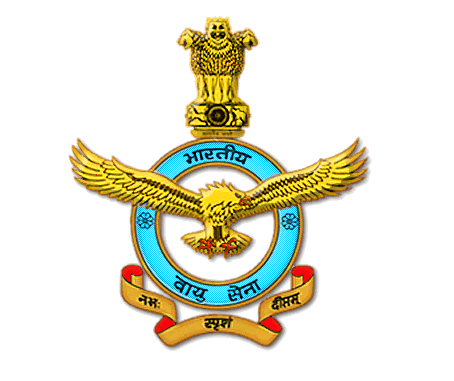
A file photo.
BEIJING (PTI): Defending the movement of its submarines in the Indian Ocean as "legitimate" and in accordance with "international practices", China on Thursday said it never objected to the presence of Indian naval ships in the disputed South China Sea as long they follow the principles of freedom of navigation.
"Talking about the submarines, the Chinese submarines cross some of sea areas and those crossings are legitimate and legal and follow the international practices," China's defence Ministry spokesman Yang Yujun said during a media interaction in Beijing when asked about the movement of Chinese submarines in the Indian Ocean area which has raised India's concerns.
Asked if the movement of Chinese submarines in the Indian Ocean is legitimate then why China considers Indian naval ships presence as "wrong", Yang said China has never taken such a stand.
"I want to point out one thing. You said when the Indian ships enter the SCS (we are saying) it is wrong. Where did you hear that. I am from the Ministry of Defence and I have never said that," he said.
"If it is done in accordance with the international law and as freedom of navigation, that should be lawful. Such movement should be helpful for country-to-country relations and for peace and stability in the region. All those kind of moves should be welcomed," he said.
China claims almost all of South China Sea which is disputed by the Philippines, Vietnam, Malaysia, Brunei and Taiwan.
A UN tribunal is set to deliver its verdict on the Philippines' petition challenging China's claims on July 12.
Beijing which boycotted its proceedings said it will not honour the judgment.
While asserting its claims on the SCS, China has been saying that it never obstructed freedom of navigation, which India, US and other international community have been emphasising as it is the busiest commercial shipping route.
But at the same time China raised vociferous objections to US naval ships in the area especially in the waters close to artificial islands built by it.
On the deployment of US naval ships in the SCS, Yang said some countries from outside the region come to SCS under "various pretexts" of their self interests and in an attempt to make provocations and troubles.
"This has posed threat to peace and stability in the region. China is not afraid of them," he said, adding that Chinese military is "not afraid of threats".
"The military fleet coming to the SCS, what is their purpose? Is their purpose peaceful? Are they coming for a friendly visit? Or for a call on the Ports? They are welcome, but if they come for making trouble we have our counter- measures," he said.
In May this year, four ships of the Indian Navy set out for a two and a half month long operational deployment to the South China Sea and North Western Pacific.
Indian naval ships also took part in the Malabar exercises along with Japanese and US naval vessels in the western Pacific recently.
China has, however, objected to India taking part in the oil exploration at the invitation of Vietnam saying it is disputed territory.
In recent years, China has been deploying submarines in the naval escort missions taking part in anti-piracy operations in the Gulf of Aden in the Somali coast. Many questions have been raised why China has to deploy submarines for such operations.
Yang said that India and China were working well together in the Indian Ocean Region, as evident in the way both countries have closely coordinated anti-piracy escort missions in the Gulf of Aden.
"Since 2008, China's navy has sent over 23 fleets to the Gulf of Aden and Somalia for escort missions and provided more than 6,000 services. We have cooperated well with the Indian Navy," he said.
On India-China relations, Yang, Director General of the Information Bureau of the Ministry of National Defence, said "Thanks to efforts of leaders, our bilateral relationship is developing very steadily and we maintained high-level strategic communication between the two militaries."
"In terms of border exchanges we also maintained very good communication and both the countries have been working very hard to maintain peace tranquility along the border," he said, adding the two armies have deepened cooperation in some technical areas.
"China hopes we will further increase cooperation and exchanges with the Indian military going forward," he said.
On Chinese military functioning under the ruling Communist Party of China (CPC), Yang said despite the reforms being carried out, the People's Liberation Army (PLA) will continue to function under the instructions of the party and President Xi Jinping.
"Chinese military functions under the leadership of the party and listens to the instructions of President Xi and Central Military Commission (CMC). It will never change no matter what happens in our reforms and opening up. So the military will listen to the command and direction of the party. That will never change," he said.
 Previous Article
Previous Article Next Article
Next Article









The Indian Air Force, in its flight trials evaluation report submitted before the Defence Ministry l..
view articleAn insight into the Medium Multi-Role Combat Aircraft competition...
view articleSky enthusiasts can now spot the International Space Station (ISS) commanded by Indian-American astr..
view article